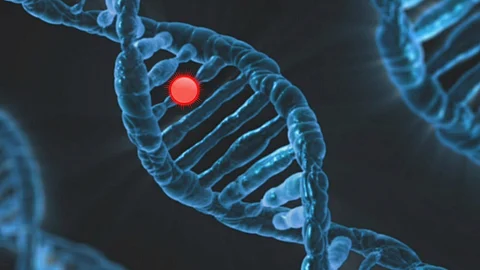

In case you thought science would stop, researchers have now found a way to reverse brain aging. But in fruit flies, exciting news, isn't it?
Scientists at the University of California have discovered a specific cellular protein that influences aging. They’ve successfully modified its gene in fruit flies, increasing their lifespan by up to 30 percent. This breakthrough could pave the way for slowing human aging and extending life expectancy.
The central discovery focuses on F-actin, a cytoskeletal protein also called filamentous actin.
F-actin creates a network of thin, flexible filaments around the cell's outer structure.
This network plays a vital role in maintaining the cell’s stiffness, shape, and movement.
As we age, the cytoskeleton’s function can deteriorate, affecting cell structure and health.
Disruptions in cytoskeletal function are linked to the development of age-related diseases.
In a recent study published in Nature Communications, researchers explored the link between F-actin and its accumulation in the aging brain. By making targeted genetic adjustments, the team aims to reduce this buildup and potentially slow the effects of aging. They discovered that this buildup interferes with the brain's cellular cleaning processes, leading to an accumulation of cellular waste over time (protein builds up in the brain, it clogs cells, blocking their natural “self-cleaning” process).
Initial results have been promising. By tweaking the genes of aging fruit flies, researchers prevented protein buildup and extended the flies’ healthy lifespan by up to 30 percent.
While this may seem modest, it represents a significant step toward broader breakthroughs in aging research. If we could apply this knowledge to humans, the impact on longevity research could be huge.
Why Fruit Fly?
Researchers chose the fruit fly for this study because its genome has been fully mapped, allowing precise targeting of genes linked to aging. In this case, they focused their genetic adjustments exclusively on neurons. Remarkably, this targeted approach boosted the flies’ overall health and showed promising improvements in brain function and other organs.
They focused on the Formin homology 2 domain containing ortholog (Fhos) gene in fly neurons, finding that reducing its expression prevented F-actin buildup in the brain. By lowering Fhos expression in aging neurons, we stopped F-actin from accumulating in the brain,” which allowed them to further investigate how this buildup influences aging. Although the genetic modification was only applied to neurons, the flies experienced a 25-30% increase in lifespan, along with better brain function and signs of improved health in other organs.
As flies age, they struggle with memory and learning, just like people do. The team’s interventions restored “brain autophagy” to youthful levels, reversing specific signs of brain aging.
Autophagy—meaning “self-eating”—is a natural process where cells break down damaged parts to keep functioning smoothly.
When F-actin was removed from the aging fruit flies, but autophagy (the process of cells cleaning out waste) was also disabled, the aging process did not slow down. This outcome suggests that F-actin drives brain aging by interfering with autophagy. In other words, F-actin buildup seems to block the brain's natural waste removal process, which leads to the accumulation of damaged or dysfunctional components in cells, contributing to brain aging. So, simply removing F-actin without restoring autophagy didn't slow aging, highlighting the importance of autophagy in protecting brain health.
F-actin Should be Removed from the Brain? Not exactly. The research suggests that preventing the buildup of F-actin in the brain could help slow brain aging. Rather than completely removing F-actin, the focus is on stopping its accumulation. When F-actin builds up, it interferes with autophagy, the process that helps clear away waste in brain cells, contributing to aging. By preventing this buildup, autophagy can function properly, allowing the brain to clean itself and potentially reverse some signs of aging. So, the key is managing F-actin levels, rather than completely removing it.
These findings suggest that F-actin accumulation may play a key role in age-related cognitive decline. Further research on this protein could provide valuable insights into the underlying causes of age-related diseases like Alzheimer’s, bringing us closer to understanding and potentially mitigating these conditions.
While these findings are promising for fruit flies, they haven't been tested in humans yet. Developing treatments to prevent F-actin buildup could be challenging, but this discovery points researchers toward a new approach for healthier aging in people.
Reference:
Schmid ET, Schinaman JM, Liu-Abramowicz N, Williams KS, Walker DW. Accumulation of F-actin drives brain aging and limits healthspan in Drosophila. Nature Communications. 2024 Oct 25;15(1):9238.
(Input from various sources)
(Rehash/Josna Lewis/MSM)
